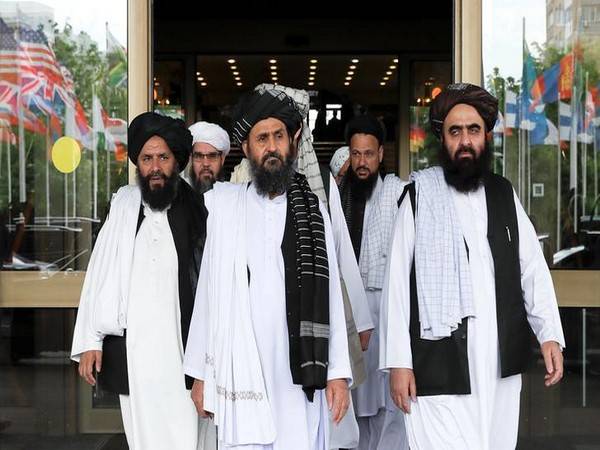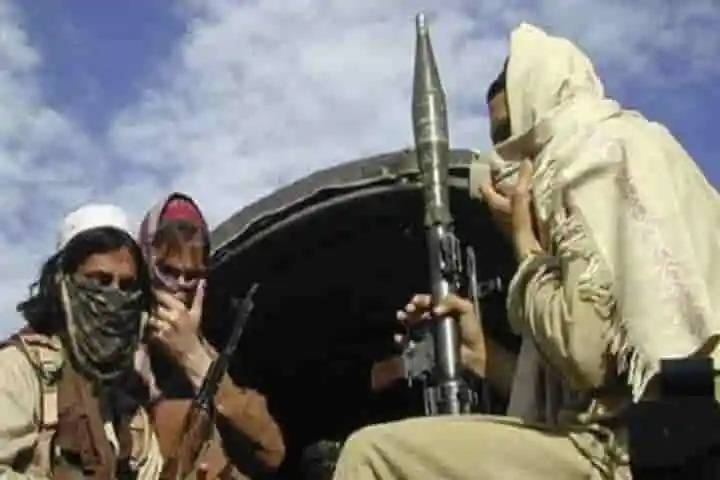Since ISIS-K specialises in mass casualty attacks, Kashmir is likely to witness attacks against security forces or installations, government offices and tourists. These attacks could be in the form of suicide bombings, bomb blasts in public places or transport, all intended to attract global attention. While ISIS-K would claim responsibility for such attacks, JeM and LeT would remain quiet and Pakistan and Taliban would be the first ones to condemn such attacks …. A special report by Dr Sakariya Kareem
The Taliban victory in Afghanistan has given Pakistan a new set of hard-core trained and experienced jihadis, newer weapons, strategy and offensive tactics in urban warfare, especially in holding against a military force. These assets will form part of Pakistan’s attempts to stoke militancy in Kashmir in the coming weeks, before the winter sets in.
One of the key elements of this new strategy would be to send cadres from JeM and LeT under the banner of Islamic State of Khorasan Province (ISIS-K), a convenient way for Pakistan to claim deniability and avoid sanctions.

Since ISIS-K specialises in mass casualty attacks, Kashmir is likely to witness attacks against security forces or installations, government offices and tourists. These attacks could be in the form of suicide bombings, bomb blasts in public places or transport, all intended to attract global attention. While ISIS-K would claim responsibility for such attacks, JeM and LeT would remain quiet and Pakistan and Taliban would be the first ones to condemn such attacks.
In the past two years, thousands of LeT and JeM cadres were trained in heavy weapons, armed assaults, urban warfare and grenade attacks by Pak Army and sent to bolster the Taliban offensive in Afghanistan. These cadres were trained in camps set up largely in Nangarhar, Kunar and Kandahar provinces of Afghanistan. Nangarhar is the base of operations for the Haqqani Network as well as ISIS-K. In fact, most of the leadership of ISIS-K come either from the Haqqani Network or from LeT. The cadres are trained in JeM-run camps. JeM is ideologically close to the Taliban and has been a conduit for recruitment and training of Taliban cadres for several years now.
Now that the Taliban has taken over Kabul, their new assignment would be Kashmir. While ISIS-K has tenuous moorings in Kashmir, both LeT and JeM, especially the former, have been able to consolidate their support and influence in Kashmir in the past few years. LeT in particular have been able to build a base of local support which was evidenced in the recent past by incidents of eulogising killed terrorists as martyrs and locals resorting to violence to give the terrorists a proper burial.

The fact that LeT could foster foreign militants in areas like Hajin, Srinagar and Baramulla, before they were ousted or killed in military operations, showed the growing capability of the group to foster local support. These areas overlooked infantry positions and were not easy to be infiltrated. But the fact that the local people hid and supported terrorists, amidst heavy military presence, showed the strength of the support.
The rising number of local recruits–38 in 2013 to 88 in 2016–amply projected the increasing hold of militant groups in Kashmir. A demographic profile of 393 local militants killed in encounters in J&K, from January 2017 to June 2019 showed that nearly 43 per cent of them were recruited by the LeT and JeM, and another 45 percent joined Hizb-ul Mujahideen. LeT and JeM cadres would be reassigned to join ISIS-K in Kashmir to carry out spectacular attacks in Kashmir, quite similar to the Kabul airport attack.
Besides direct attacks, the ISIS-K would be more emboldened to take on the security forces in isolated mountainous areas as well as crowded urban centres. The LeT, JeM and ISIS-K cadres have gained considerable experience in this regard while ousting the Afghan forces. Although the Indian security forces are battle-hardened and more experienced than the Afghan forces, the terrorist cadres from Pakistan, with new tactical weapons and strategies learnt in Afghanistan in the past few months, will present a stronger challenge than in the past. Groups like LeT and JeM would fall back on their local support network to plan and attack new targets, and escape, waving the flag of ISIS-K.
READ MORE: Pakistan promotes ‘culture of violence’: India
READ MORE: What is Pakistan upto in Kabul?

Leave a Reply